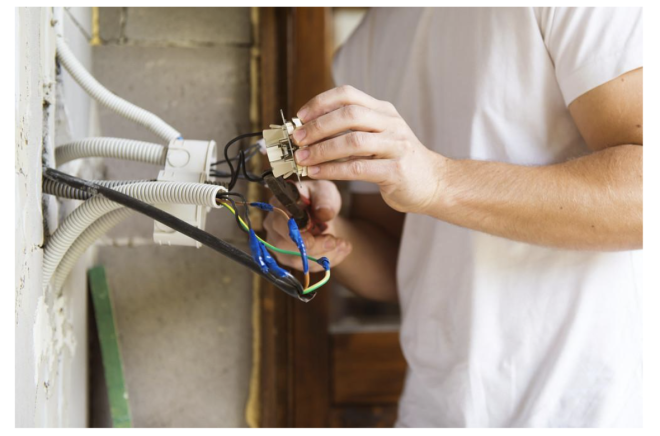- Change theme
The Ultimate Guide to Plumbing, Electrical, and HVAC Maintenance

Maintaining the essential systems in your home is crucial to ensure comfort, safety, and utility efficiency.
09:31 11 April 2025
Maintaining the essential systems in your home is crucial to ensure comfort, safety, and utility efficiency. This comprehensive guide will walk you through the essentials of plumbing, electrical, and HVAC maintenance. Whether you are a seasoned homeowner or new to home maintenance, understanding these key components can save you time, money, and stress.
Plumbing Maintenance Tips
Plumbing systems are the hidden lifelines of any home, ensuring that water flows when and where you need it. In the United States, as of 2024, over 113,000 plumbing businesses are providing employment to approximately 564,000 individuals. This widespread network highlights the importance of maintaining a well-functioning plumbing system.
Regular inspection of taps and pipes for leaks can prevent water wastage and reduce water bills, significantly benefiting the environment and your wallet. Leaks, even small ones, may indicate larger problems within your home’s plumbing system, which, if not addressed, can exacerbate over time. Early detection and maintenance can also prevent mold growth, a major concern associated with water damage.
It’s essential to also focus on the less visible parts of your plumbing, such as sewer lines and sump pumps. Clogged sewer lines can lead to backflows, which are both unhygienic and damaging to property. Ensure to schedule regular maintenance and cleaning with professional services to keep everything running smoothly.
Electrical Maintenance Tips
The electrical systems within your home are fundamental to modern living, powering everything from your lighting to your essential appliances. According to industry sources, there were roughly 1,108,838 individuals working in the electrician industry in the U.S. by 2023. This workforce is integral to ensuring the electrical safety and efficiency of home systems across the country.
Regularly inspecting your home’s electrical wiring and systems is valuable for preventing potential hazards such as fires caused by faulty connections. Ensure that your circuit breaker is functioning correctly and that outlets are in good condition. Frequent tripping of a circuit breaker is often a sign of overloading, and addressing this swiftly can avert costly repairs and ensure safety.
Upgrading your home’s lighting to LED fixtures can be an effective way to reduce energy consumption. Not only do they require less energy, but they also last significantly longer than traditional bulbs, decreasing the frequency of replacements needed. Additionally, integrating smart technology can further enhance energy management and monitoring within your home.
HVAC Maintenance Tips
One of the most vital aspects of home comfort is a reliable Heating, Ventilation, and Air Conditioning (HVAC) system. Modern air conditioning units are engineered to last up to 18 years, assuming they receive proper and regular care. By adhering to a routine maintenance schedule, you can extend the lifespan of your system and maintain its efficiency.
Changing filters as recommended by the manufacturer is a simple but critical task to ensure your HVAC system runs efficiently. Dirty filters can lead to system failures and can contribute to increased allergens and dust within your home. Keeping the system clean and clear of debris is vital for both air quality and system longevity.
Seasonal tune-ups conducted by certified professionals can identify and address potential problems before they become costly repairs. Ensuring that refrigerant levels are adequate and inspecting mechanical components can prevent unexpected breakdowns. Having a reliable HVAC inspector is an investment in preserving the comfort of your home throughout the year.
Diligent maintenance of your home’s plumbing, electrical, and HVAC systems is essential for ensuring safety, efficiency, and overall comfort. By investing in regular inspections and staying informed about each system’s needs, homeowners can prevent costly repairs and enhance their home life. This proactive approach not only extends the lifespan of your home systems but also provides peace of mind in knowing that your home operates at its best.
